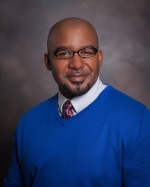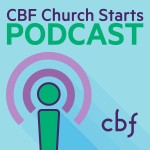By Terrell Carter
 Synergy means “the creation of a whole that is greater than the simple sum of its parts.” It comes from the Latin word synergia which means “working together”. In Numbers 11:24-30, we see an example of how God brought synergy to the Children of Israel through the movement of the Holy Spirit.
Synergy means “the creation of a whole that is greater than the simple sum of its parts.” It comes from the Latin word synergia which means “working together”. In Numbers 11:24-30, we see an example of how God brought synergy to the Children of Israel through the movement of the Holy Spirit.
In that passage, it had been over a year since God’s children had fled Egypt. They had begun to spend considerable time complaining about any and everything. Their latest complaint was about a lack of variety in the food God was providing for them. Manna may have been God given, but it was boring. Moses heard the people’s complaints and in turn complained to God about the people.
God told Moses that he could relax. A plan was in place. God would provide the people with so much meat that they would begin to complain about having too much meat. God would also empower other people to help Moses lead the people.
At a specified time, God provided quails for the people and transferred a portion of Moses’ Spirit to a group of 70 leaders who would assist him. Immediately, the leaders began to prophecy and act in ways that verified that whatever it was Moses had received from God was also given to them. The purpose of the distribution of God’s Spirit among those leaders was not to enhance the status of those who received it. It was to facilitate the working of God among and through the people.
If that Spirit transfer wasn’t strange enough, something else occurred to two men who were not a part of that group of 70. At the same time as the 70 were being filled with the Spirit, two men named Eldad and Medad were also receiving the Spirit. They exhibited the same type gifts that the 70 did.
A young boy ran to Moses and told him what he saw and heard occurring to Eldad and Medad. Joshua, Moses’ right-hand man, implored Moses to stop them. Moses’ response was classic. “Are you afraid for what this may do to me and how people will view me? I wish that God would pour the spirit out on everyone and that everyone would prophecy.”
In Moses’ mind, what happened was a wonderful thing. You could almost say it was synergistic. God shared the Spirit with these other people to increase the ministry that was to occur. Moses was not in appropriate shape mentally or emotionally trying to do it all by himself, so God developed a plan that would raise new leaders which would make everyone’s life better.
But not everyone saw the sharing of the Spirit with Eldad and Medad as a good thing. It wasn’t that sharing the Spirit was a terrible thing. But, once God shared it in a way that was not approved or appreciated by Joshua, things began to turn ugly. Eldad and Medad were not on the approved list, therefore Joshua thought they shouldn’t be included.
Joshua could have seen this as an overflowing of God’s Spirit and celebrated the fact that God shared with more people than they anticipated. Instead, he saw it as something to try to control and stamp out for the sake of Moses’ reputation and likely his own reputation. Joshua failed to see this as part of God’s synergy.
Synergy recognizes the benefits that come when multiple single things work together in unison to produce something greater as a group than could be produced working alone. My question for you today is what does synergy look like within your church or ministry context? Is it even possible for synergy to exist in your context? Is God able and invited to use anyone whom God chooses or is there the expectation that God only speaks through a chosen few people like the pastor or chair of deacons? Is the Spirit invited to actively participate in the life of the body or does the body try to control the Spirit?
It goes without saying that we don’t control God or the movement of the Holy Spirit. We do well to openly invite or eagerly anticipate and interact with the Spirit’s movement in diverse ways and through diverse people. Sometimes that interaction may occur through unexpected people who are not seminary trained or polished professionals. God may determine to speak and act through people who are not a part of the prized “inner circle” of your context. Will you recognize this as God’s movement or will you try to squash it to save someone else’s reputation.
My prayer is that we would invite the Spirit of God to shine brightly through all of us and not just through a handful of chosen people.
Terrell Carter, D.Min., is assistant professor and director of contextualized learning at Central Seminary in Shawnee, Kan., and pastor of Webster Groves Baptist Church in Webster Groves, Mo.
Interested in writing for CBF at Patheos? Submit your column idea to CBF Communications Director Aaron Weaver at aweaver@cbf.net.













